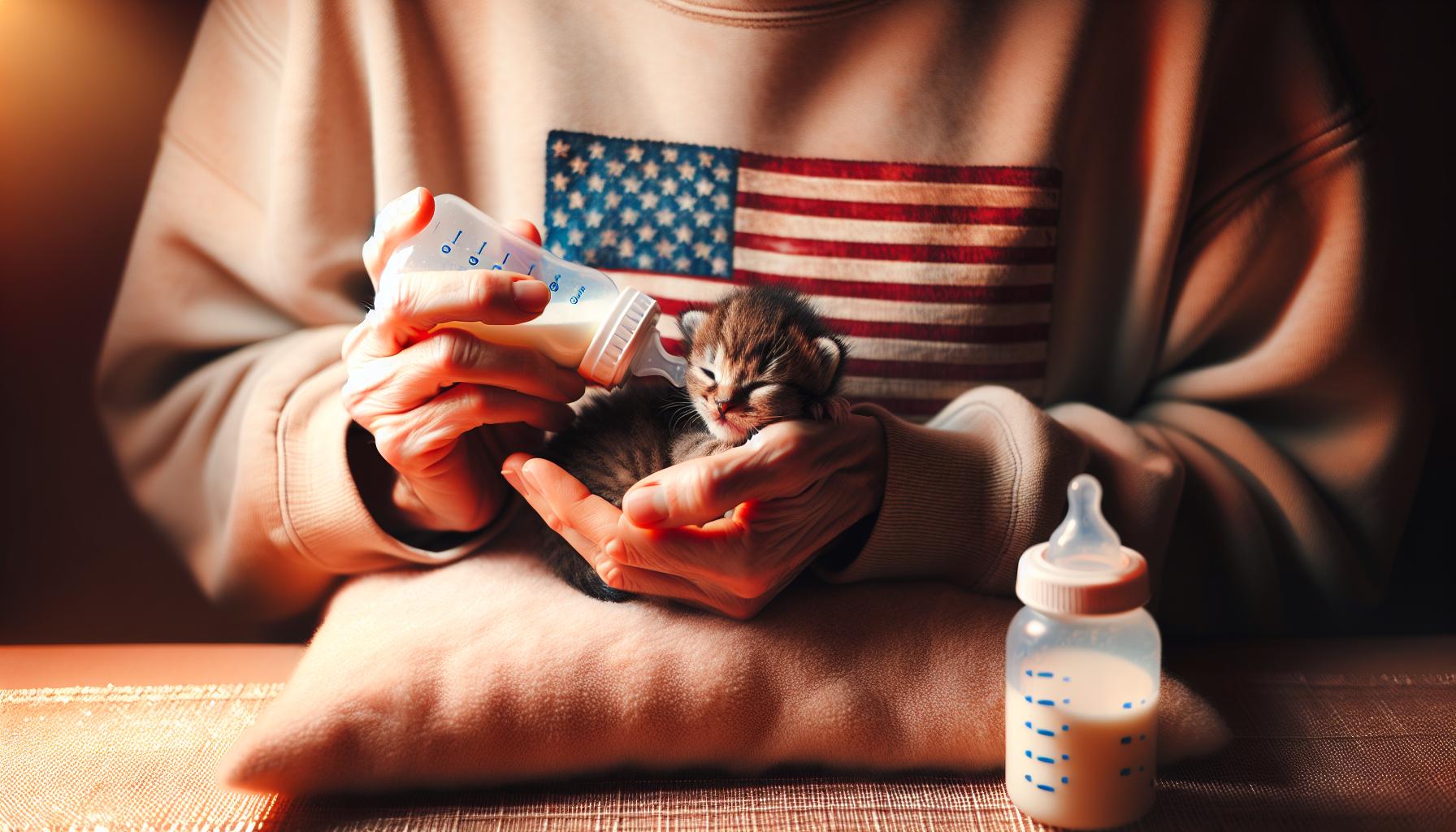Bringing a newborn kitten into the home is an exciting and rewarding experience. Ensuring their health and happiness requires understanding their unique needs during these early stages. From providing the right nutrition to creating a safe environment, every step counts towards raising a thriving cat.
Proper care starts with warm bedding and a quiet space where the kitten can feel secure. Regular feeding schedules, gentle handling, and timely veterinary check-ups help build a strong foundation for their growth. By following these essential tips, new cat owners can confidently nurture their newborn feline, setting the stage for a lifelong bond.
Preparing for Your Newborn Kitten
Ensuring a smooth transition for a newborn kitten involves careful preparation. The following sections outline the essential supplies and steps to create a safe environment.
Essential Supplies
- Bedding: Provide a soft, warm bed using blankets or a pre-made kitten bed.
- Litter Box: Use a shallow litter box with non-clumping litter to prevent ingestion.
- Food and Water Bowls: Choose shallow, sturdy bowls to avoid tipping.
- Kitten Food: Select high-quality kitten formula for proper nutrition.
- Toys: Offer safe, age-appropriate toys to encourage play and development.
- Grooming Tools: Stock gentle brushes for maintaining the kitten’s coat.
- Carrier: Have a secure carrier for safe transportation to the vet.
Creating a Safe Space
Designate a quiet area free from hazards for the kitten to rest and explore. Ensure the space maintains a temperature between 75-80°F to keep the kitten comfortable. Remove small objects and toxic plants to prevent accidents. Include hiding spots and climbing structures to support the kitten’s natural instincts.
Feeding Your Newborn Kitten


Proper nutrition supports a newborn kitten’s growth and development. Selecting the appropriate formula and maintaining a consistent feeding schedule are crucial.
Choosing the Right Formula
Select a kitten-specific milk replacer, avoiding cow’s milk due to lactose intolerance. Opt for brands like KMR (Kitten Milk Replacer) or PetAg that provide essential nutrients. Ensure the formula contains:
- Proteins: Supports muscle development.
- Fats: Provides energy for growth.
- Vitamins and Minerals: Enhances overall health.
Feeding Schedule
Newborn kittens require frequent feeding to thrive. Follow this schedule to meet their nutritional needs:
| Age | Frequency | Amount per Feeding |
|---|---|---|
| 0-1 week | Every 2-3 hours | 2-4 ml per feeding |
| 1-2 weeks | Every 3-4 hours | 4-6 ml per feeding |
| 2-3 weeks | Every 4-5 hours | 6-8 ml per feeding |
| 3-4 weeks | Every 5-6 hours | 8-10 ml per feeding |
Monitor the kitten’s weight daily. Adjust the amount if the kitten gains or loses weight consistently. Use a soft syringe or kitten feeding bottle for accurate delivery.
Health and Development
Ensuring a newborn kitten’s health and monitoring its development are crucial for its growth. Regular assessments help identify any issues early.
Monitoring Growth
Track the kitten’s weight daily to ensure steady growth. Use a digital scale to record measurements in ounces or grams. Refer to the table below for typical weight milestones:
| Age (Weeks) | Average Weight |
|---|---|
| 1 | 85–115 grams |
| 2 | 170–230 grams |
| 3 | 255–345 grams |
| 4 | 340–460 grams |
| 5 | 425–575 grams |
| 6 | 510–690 grams |
Monitor feeding patterns and activity levels to assess overall health. Adjust feeding amounts based on weight gain and consult a veterinarian if growth slows.
Common Health Issues
Newborn kittens may encounter several health problems that require attention:
- Dehydration: Look for dry gums and sunken eyes; ensure proper feeding.
- Hypothermia: Signs include shivering and lethargy; maintain a warm environment.
- Respiratory Infections: Symptoms include sneezing and coughing; seek veterinary care immediately.
- Gastrointestinal Problems: Diarrhea or vomiting may indicate infections; monitor hydration and consult a vet.
- Parasites: Check for fleas or mites; use appropriate treatments as recommended by a veterinarian.
Early detection of these issues improves the chances of successful treatment and healthy development.
Socialization and Care
Ensuring proper socialization and care fosters a strong bond between the kitten and its owner. Effective handling and litter training are crucial components of a newborn kitten’s development.
Handling and Bonding
Gentle handling enhances trust and attachment. Interact with the kitten daily through petting, playing, and short holding sessions. Limit sessions to 5-10 minutes initially to prevent overstimulation. Regular interactions support the kitten’s emotional development and comfort around humans.
- Petting: Stroke the kitten softly, focusing on the head and back.
- Playing: Use interactive toys like feather wands or small balls.
- Holding: Securely hold the kitten to promote a sense of safety.
Monitor the kitten’s responses for signs of stress, such as hissing or attempting to escape. Adjust interaction frequency and duration based on the kitten’s comfort level.
Litter Training
Introduce the litter box immediately after bringing the kitten home. Select a shallow, non-clumping litter box to accommodate the kitten’s small paws. Place the box in a quiet, accessible location away from food and water dishes.
- Litter Type: Use unscented, clumping-free litter for safety.
- Placement: Keep the litter box in a low-traffic area to provide privacy.
- Encouragement: Gently place the kitten in the litter box after meals and naps.
Maintain the litter box by cleaning it daily and completely replacing the litter weekly. Observe the kitten’s usage patterns to identify any issues early. Proper litter training ensures cleanliness and establishes routine bathroom habits.
Conclusion
Caring for a newborn kitten requires dedication and attention to detail. Providing a safe and nurturing environment sets the foundation for their healthy growth and development. Consistent feeding routines and vigilant health monitoring ensure the kitten thrives during these crucial early stages.
Gentle handling and regular social interactions help build a strong bond, fostering trust and confidence. Equipping the home with the right supplies and creating a comfortable space allows the kitten to explore and feel secure. By following these essential care steps, new cat owners can enjoy a happy and healthy relationship with their feline companion, setting the stage for a lifetime of joy and companionship.

